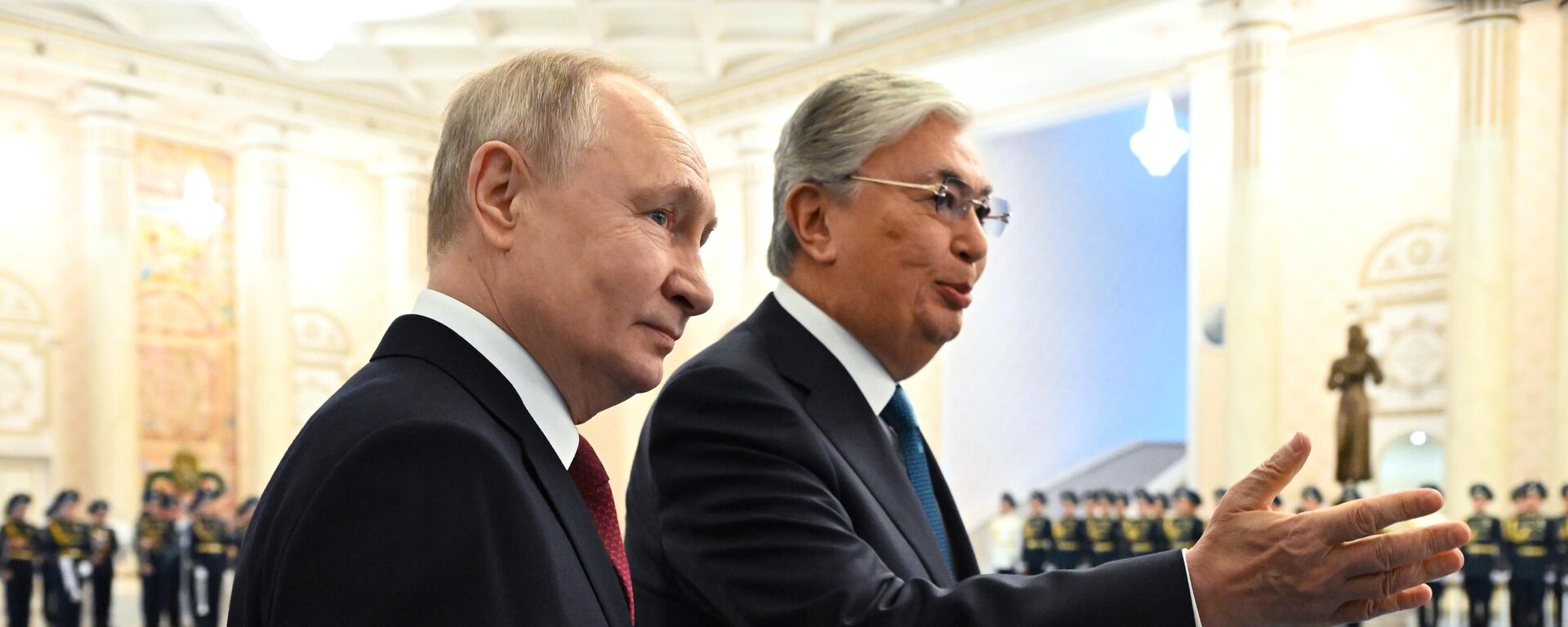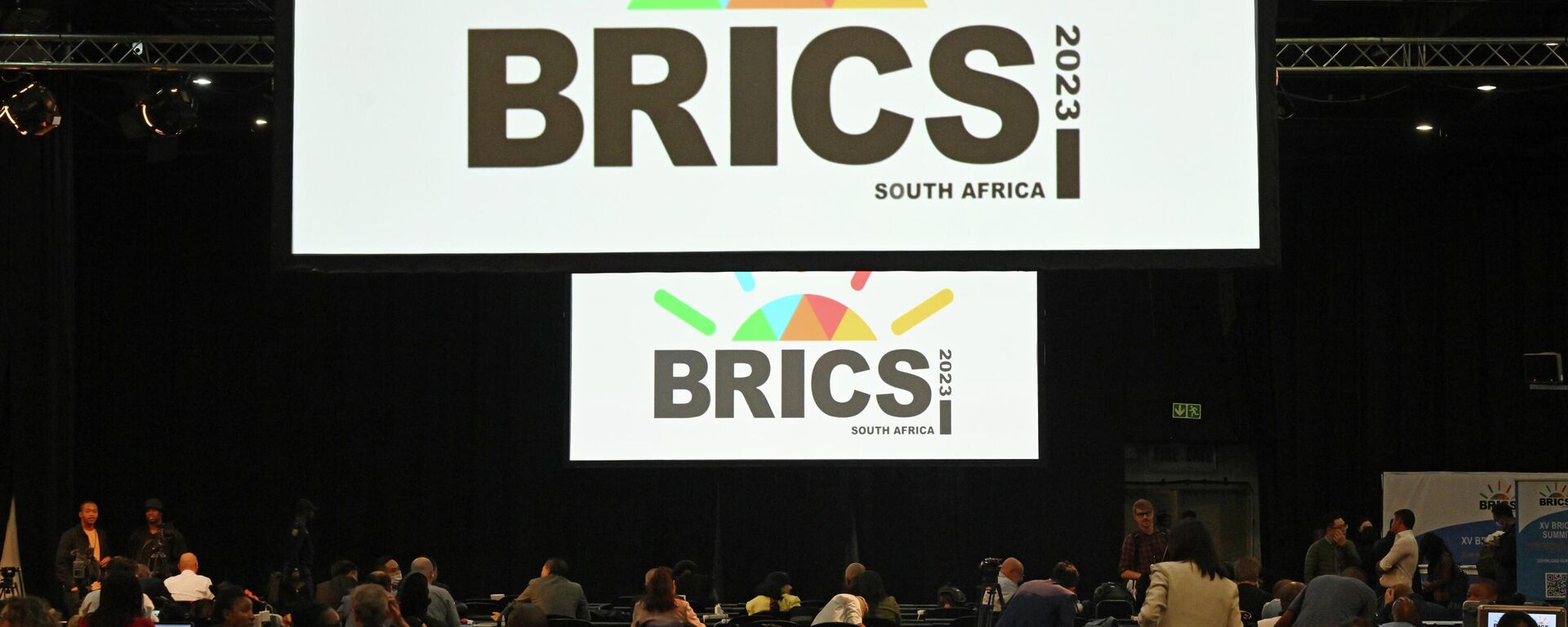https://sputnikglobe.com/20231109/west-no-longer-center-of-world-economy-asia-pacific-is---bolivian-president-1114838071.html
West No Longer Center of World Economy, Asia-Pacific Is - Bolivian President
West No Longer Center of World Economy, Asia-Pacific Is - Bolivian President
Sputnik International
The United States and Europe are losing their influence as pillars of the global economy to countries in the Asia-Pacific region, Bolivian President Luis Arce said.
2023-11-09T11:07+0000
2023-11-09T11:07+0000
2023-11-09T12:13+0000
economy
brics
global economy
bolivia
https://cdn1.img.sputnikglobe.com/img/104868/70/1048687036_0:101:1927:1185_1920x0_80_0_0_d9f4e69d96035ad91cd05b44cf81cd42.jpg
Earlier, Arce delivered a report to the parliament on Bolivia's economic development results over his three years in office, saying that the emerging economies, particularly those in the BRICS grouping, would maintain economic growth rates of at least 4% in 2023 and 2024. "This [the economic growth] makes it clear that their economies are growing faster than those of the so-called advanced economies. These differences in economic projections are explained by the fact that the bloc of hegemons comprising the US and Europe is no longer the center of the world economy, giving way to the bloc of Asia-Pacific countries," he said. In August, the Bolivian president told Sputnik that his country welcomed the accession of new countries to BRICS and hoped to join the bloc as soon as possible. BRICS currently includes Brazil, Russia, India, China and South Africa. In August, the 15th top-level BRICS summit in Johannesburg extended invitations to Argentina, Egypt, Ethiopia, Iran, the United Arab Emirates and Saudi Arabia to join the bloc. Their full membership will start on January 1, 2024.
https://sputnikglobe.com/20231109/payments-in-national-currencies-between-russia-kazakhstan-expanding---putin-1114835896.html
https://sputnikglobe.com/20231108/brics-share-of-global-economy-may-rise-more-than-twofold-compared-with-g7-by-2040-1114815952.html
bolivia
Sputnik International
feedback@sputniknews.com
+74956456601
MIA „Rossiya Segodnya“
2023
Sputnik International
feedback@sputniknews.com
+74956456601
MIA „Rossiya Segodnya“
News
en_EN
Sputnik International
feedback@sputniknews.com
+74956456601
MIA „Rossiya Segodnya“
Sputnik International
feedback@sputniknews.com
+74956456601
MIA „Rossiya Segodnya“
global economy, asia-pacific, de-dollarization, asian pacific, asian economy
global economy, asia-pacific, de-dollarization, asian pacific, asian economy
West No Longer Center of World Economy, Asia-Pacific Is - Bolivian President
11:07 GMT 09.11.2023 (Updated: 12:13 GMT 09.11.2023) MOSCOW (Sputnik) - The United States and Europe are losing their influence as pillars of the global economy to countries in the Asia-Pacific region, Bolivian President Luis Arce said.
Earlier, Arce delivered a report to the parliament on Bolivia's economic development results over his three years in office, saying that the emerging economies, particularly those in the BRICS grouping, would maintain economic growth rates of at least 4% in 2023 and 2024.
"This [the economic growth] makes it clear that their economies are growing faster than those of the so-called advanced economies. These differences in economic projections are explained by the fact that the bloc of hegemons comprising the US and Europe is no longer the center of the world economy, giving way to the bloc of Asia-Pacific countries," he said.

9 November 2023, 09:09 GMT
In August, the Bolivian president told Sputnik that his country welcomed the accession of new countries to BRICS and hoped to join the bloc as soon as possible.
BRICS currently includes Brazil, Russia, India, China and South Africa. In August, the 15th top-level BRICS summit in Johannesburg extended invitations to Argentina, Egypt, Ethiopia, Iran, the United Arab Emirates and Saudi Arabia to join the bloc. Their full membership will start on January 1, 2024.

8 November 2023, 13:41 GMT




